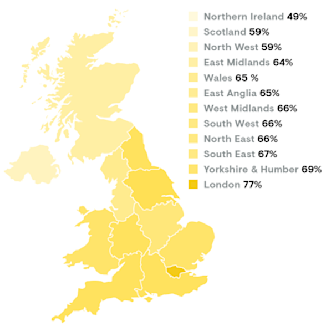
Death & Us: What we’ve learnt about attitudes towards death in 2021
The last 18 months have made us think about our mortality more than ever before. We’ve put together a report that looks at attitudes to death and how they’ve changed over the last year.
After speaking to two thousand people about how they feel about dying, we’ve put together a report that looks at attitudes to life, death and everything in between.
Welcome to our Death & Us report. Our report has shown us the impact the pandemic has had on how we think, feel and speak about death.
We’ve worked closely with independent grief expert and Co-Founder of Difficult Conversations, Dr. Catherine Millington-Sanders, to analyse the data from our report. And we’ve explored a few ways to make it easier to start talking about death with loved ones.
Our mission at Farewill is to change the way the world deals with death. And we believe talking about death is a big part of this. We’ve seen first hand that when we don’t talk about death it can
make grief a lot harder to deal with
family disputes are more likely to come up
we’ve even seen people end up paying higher funeral costs
We’ll run this report annually, tracking trends around what people think and feel about life, death and everything in between. You can download the full Death & Us report here.
Download the full report here
Death & Us looks at 2021’s biggest trends in attitudes towards death and grief.
The pandemic and talking about death
1 in 3 people said the pandemic made them talk more openly about death
47% of people said that the last 18 months made them think about their own mortality more than ever and 54% of people said it was because of seeing the daily death toll in the news. Among this group, we saw that 18 to 24 year olds were the most likely to speak about death because of the impact of the pandemic.
Speaking to Dr. Millington-Sanders about this data, she said that while “talking about death feels uncomfortable”, conversations around dying and grief can “help people feel less afraid, distressed and alone”.
A third of Londoners (33%) said that the pandemic triggered conversations about death, as they realised they hadn’t taken any steps to prepare for death. And this was the highest proportion in the UK - compared to just 6% of people living in Northern Ireland.

Younger generations and dealing with grief
Gen Z were the most open to the topic (63%); they discuss their end-of-life wishes more than any other generation
Gen Z are showing us how it’s done, being the most likely group to say that grief has impacted them.
18-34 year olds were less likely to want a traditional funeral (where guests wear black, there’s a eulogy, hymns and prayers, a black hearse) because of concerns around the impact on the environment.
The increase in environmental activism we’ve seen over the last few years seems to have had an impact on attitudes to death too!

The grief gender gap
Over a quarter (26%) of people haven’t spoken to their partner or a close relative about their end-of-life wishes
Our report has shown that while attitudes are changing, speaking about death is still a taboo. We also saw that there’s a gender gap when it comes to how people said grief impacted them.
Women were more likely to say that grief had impacted their mental health, physical health, ability to socialise or work and their relationships with family and friends.
Looking at the data, Dr. Millington-Sanders said that “We can all recognise different styles of grief - some people express their emotions such as crying, feeling sad or angry” and noted that “whatever our gender, we grieve in our own unique way and there’s no right or wrong response”.
Download the full report here
Death & Us looks at 2021’s biggest trends in attitudes towards death and grief.
Article reviewed
